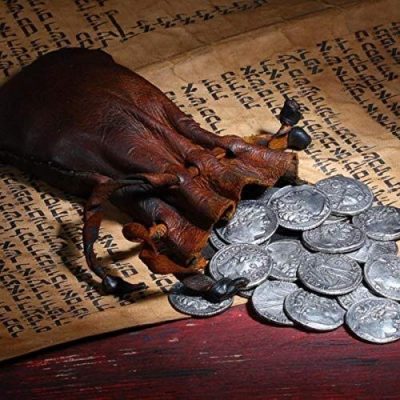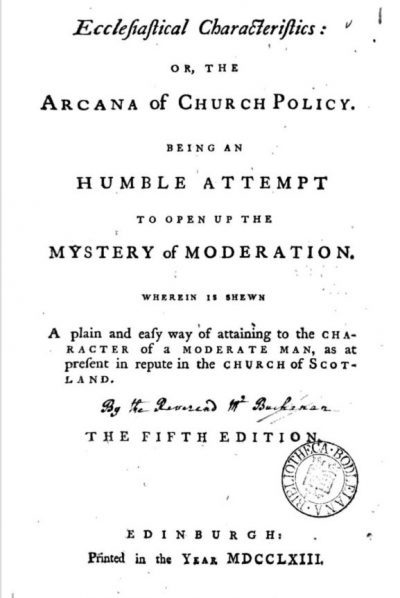CERC Blog
A reflection for 2020: Oh beware, beware of being the halfway “Christian”
Posted on 23 Mar 2020 by Elden Pan
A reflection for 2020: Oh beware, beware of being the halfway “Christian”
23 March, 2020 – by Elden Pan

I benefited a lot from the Matthew series that CERC went through last year. And as we were tying up our Growth Group (GG) studies on the book of Matthew, I had a few key reflections – one of which I want to share at the start of 2020.
In Chapter 26 of Matthew, we approach the betrayal of Jesus (which was followed subsequently by His death in Chapter 27). And as I was listening to the sermon and preparing for GG, what caught my eye was Matt 26:15 – that Judas’ betrayal of Jesus was for 30 pieces of silver.
Matthew 26:14-15:
Then one of the twelve, whose name was Judas Iscariot, went to the chief priests and said, “What will you give me if I deliver him over to you?” And they paid him thirty pieces of silver.
Initially the details just skimmed past me, however, looking back at it again caused me to mull over it for a long time. 30 pieces of silver – there was a problem with that. It wasn’t a large amount of money (like the woman with the alabaster flask of very expensive ointment in Matt 26:7), neither was it nothing. Judas sold his Lord and Saviour (whom he called “teacher”) for thirty pieces of silver – which is equivalent to about $600 – a fair amount of money, but most certainly not life-changing. Why was he willing to betray Jesus for that price?

Jesus was betrayed for 30 pieces of silver
The fulfilment of Zechariah 11:13 was one of the clear reasons for this “lordly price”. That aside, I asked myself – what kind of human being would betray another for this amount? Sure, Jesus’ expectations of him, or for any other disciples of his for that matter, would be that he would never betray his teacher and saviour, His Lord and Master – and more than that, that he would lay down his life to protect the Gospel one day. And this would be the right right response. But if he were to respond in another way – isn’t there only one other consistent response? That he properly betrays Jesus – to sell him for more money since he already plans to betray him? For most of us “practical people” (morals aside) if we’re going to betray someone, is it really worth taking the risk and going through all that trouble for that amount of money? Why not ask for more?
So Judas was neither responding with the right right response, nor the right wrong response. His was the wrong wrong response – the halfway response.
Then as I was reading into Matthew 27:3-4, I picked up that his response towards realising his sin was also halfway.
Matthew 27:3-4:
Then when Judas, his betrayer, saw that Jesus was condemned, he changed his mind and brought back the thirty pieces of silver to the chief priests and the elders, saying, “I have sinned by betraying innocent blood.”
There was something “halfway” about his repentance. One indicator of this is the Greek word for his regret being metamelomai (not metanoeÅ, the normal term for “repent”). The other clue was the way in which he demonstrated this supposed repentance. His repentance took the form of him: (i) returning the money; and (ii) him saying that “he had betrayed innocent blood”.
It looks like genuine repentance to the average reader out there – where he betrayed, he admitted guilt; and where he had received blood money, he returned all of it – except for the part where he commits suicide which many evangelicals would then make an issue of. But for me, the issue wasn’t so much of his act of committing suicide. It was that his repentance wasn’t the kind of repentance that a son of God would display in betraying the Son of Man! An unbeliever, on one hand, would not feel any sense of regret and happily use the money that he had received. A disciple, on the other hand, would realise that he betrayed the Son of Man(!) – not just “innocent blood” or any innocent man for that matter – and would then live his whole life (including die) for this Son of Man since he cannot take back what he has done or reverse the sequence of events after his betrayal.
We see Peter’s life – who eventually died for the Gospel, as one who demonstrated true repentance. Judas’ repentance was nowhere near that! It was halfway.
Judas was a halfway man – and no halfway man would inherit the Kingdom of God according to the book of Matthew.
Before I easily dissociate myself from Judas, thinking that I would never betray Jesus in this way and therefore that I wasn’t ever a halfway man – within the same passage of Matthew 26, the author was drawing parallels between Judas and the other disciples.
I could then see that the indignant disciples of Matt 26:8-9 were exactly like Judas! Sure, there was a varying degree of this “halfway-ness”, but of the same kind.
Matthew 26:8-9:
And when the disciples saw it, they were indignant, saying, “Why this waste? For this could have been sold for a large sum and given to the poor.”
The woman with the alabaster flask showed the right right response to the Son of Man given His impending death. Jesus was worth everything – more than even 300 denarii (cf. John 12:5). And that expensive bottle of perfume represented everything that the woman could afford.
Matthew then shows how the disciples were halfway – in that they were indignant! The problem with this response is that it is neither “I hate Jesus and I want to kill Him”, nor “Jesus is the Son of Man and He is worth everything!”. And see how their reasoning as to what could have been done with the expensive perfume sounded legit and has the appearance of being godly. Well, that’s the problem — halfway Christianity sounds reasonable and practical. Whereas the kind of Christianity that Matthew calls us to sounds completely radical.
In juxtaposing the incident of the woman with the alabaster flask and Judas’ betrayal, Matthew is clearly showing us that the disciples are no different from Judas in fact. No different. The only difference between them is that God chose to preserve the eleven (Matthew 11:25-27).
And this drove the point straight home – I then realised that I am no different from the disciples. No different from Peter. No different from Judas. Matthew was using these negative examples of the disciples to expose my (our) faulty discipleship and to build it up at the same time.
This is a wakeup call to true repentance for all of us who have been halfway – where our Christianity sounds completely practical and reasonable; and “it’s not like I’m against God, I love Him…but must it be this radical?”. Jesus calls us to a discipleship that is modelled after His Son – one that denies himself completely and takes up his cross.

Ecclesiastical Characteristics: Or, the Arcana of Church Policy by John Witherspoon
Coincidentally, last week my trainer, Elder Robin, brought up this book during our apprenticeship training session – ‘Ecclesiastical Characteristics: Or, the Arcana of Church Policy’ (1975, written by John Witherspoon), which Kevin DeYoung did a PhD on – which states the “marks of a moderate man” in satirical fashion. In this book, Witherspoon gives 13 maxims for becoming a moderate man OR a halfway Christian. Just to make it clear, it is a satire – Witherspoon doesn’t agree with being a moderate man, but rather is lampooning this version of Christianity. I think Witherspoon hits closer to home in getting us to apply what it means to be a halfway Christian in this 21st century.
Oh beware, beware of being a halfway man (myself included!), because no halfway man will inherit the Kingdom of God.
Revelation 3:16: (the other 3:16!)
So, because you are lukewarm, and neither hot nor cold, I will spit you out of my mouth.
